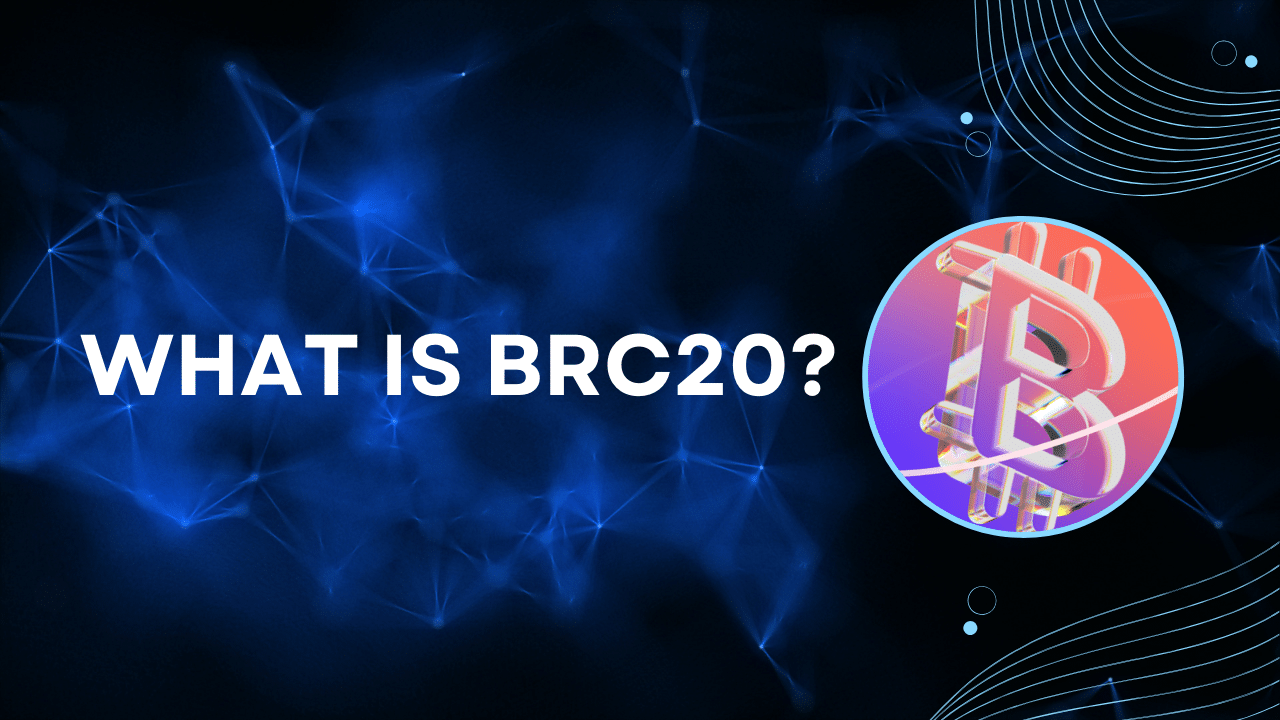Contents
|
|
There are two types of people in this world: one, who adjust and adapt to what the system throws at them and the second, who take the bull by its horns and push it to run in the right direction.
Quite certainly, most people adapted to the 2007-08 global financial crisis that ensued due to the major banks mishandling their customers’ money. Some, on the other hand, decided to change the course of the financial system. And Bitcoin was invented.
Least did anyone know that a digital currency that was valued so low that it took a man 10,000 Bitcoins to buy one pizza in 2010 would become a global phenomenon in the years that followed.
At the time of writing, the overall cryptocurrency market capitalization sits at more than $348 billion. The 24-hour trading volume of all cryptocurrencies listed on exchanges worldwide according to CoinMarketCap is more than $355 billion.
This goes on to show the expanse of the cryptocurrency industry. And very few would disagree that the cryptocurrency exchange Coinbase has established itself as the de facto exchange, especially in and around the American region.
Contents
Coinbase’s Road to Glory
Three years after the creation of Bitcoin, the former Airbnb engineer Brian Armstrong set foot to ease the exchange of digital currencies in 2012. The startup soon became a part of the Y Combinator startup incubator program. The same year, in October, Coinbase launched its service allowing users to buy and sell Bitcoin through bank transfers.
By 2013, Coinbase had already raked in $30 million from major investors — Andreesen Horowitz and Union Square Ventures — in its two funding rounds. It was an open display of the fact that Coinbase was into the cryptocurrency industry not to be just another exchange but to be the dominant industry player.
Year on year, Coinbase showed extraordinary growth and expanded across the United States and countries around the world. Today, the exchange provides fiat currency support in 32 countries. The yearly revenue for the exchange in 2018 crossed half a billion dollars, according to a Reuters estimate.
However, beneath all the glory, beneath the impressive portfolio of work, it’s high-profile founders, CXOs, employees, investors, advisors, and the pivotal role they all collectively play in the adoption of cryptocurrencies, there lie some facts that Coinbase proponents and fans would rather not want to discuss.
In this complete guide, we aim to help you move beyond the mainstream and consider exchanges other than Coinbase that may better fit your needs.
Before we delve any deeper, let’s go through some of the drawbacks of Coinbase.
Why look for Coinbase alternatives?
Consider this: when you go out to make a one-time investment in a laptop, you always have the required specifications in your mind. But it’s not likely that you decide what exact laptop you want before you do your research. Of course, a 15.6-inch Macbook with 16 GB RAM and 1TB hard drive may seem like the best fit, but what if you’re low on budget? What if it does not support an application you need to run? There could be many “what ifs” even when you’re making a one-time investment.
Then why not carefully research and consider all the pros and cons of exchanges before you choose one and start investing thousands of dollars through it?
We talked about how great Coinbase is, here are some things that may force you to reconsider your choice if you chose Coinbase already:
- Coinbase and an unending list of frozen accounts: If there’s one thing that the cryptocurrency community is very serious about, it’s their freedom and the democratic nature of the industry. Coinbase, on the contrary, has done its fair share to earn a bad name for posing a threat to that freedom — even though sometimes with the only intention of being in the good books of the regulators.
The exchange is known to ask a long list of questions to its users in a bid to regulate the usage of the exchange. And later, it bans the users for not complying with their policies. In 2018, Coinbase sparked controversy when it banned the account of Wikileaks — the international non-profit that shares classified information and news leaks from anonymous sources.
- A record-high maker fee: In October 2019, Coinbase increased the maker fee — fee charged for adding liquidity to the exchange — on its platform by over 233%. Before that, Coinbase was still infamous for charging high fees from its lower level traders. And the crypto community has since had a distaste for the exchange due to its extra attention toward the elite traders while ripping its basic users off their money.
- Centralization at the core: It’s no surprise that Coinbase is a centralized exchange for decentralized currencies. But what’s rather striking is how Coinbase has been managing its processes and protocols. Many are growing skeptical that Coinbase will eventually transition into becoming just another bank of a traditional financial system.
News surfaced in June 2020 that the exchange was planning to sell its users’ data to two government agencies for $250,000. According to a Twitter poll following the news, 66% of more than 5,000 voters said they would opt out of the exchange.
- Customer isn’t the king: Earlier in February, the exchange found itself amidst another controversy when many Coinbase users were unable to transact more than $10 per day. A user took to Reddit accusing the exchange of denying to look into the matter. This is just one of the many cases reported against Coinbase’s poor customer support.
The famous platform is not always the right fit
Now you have an idea of why Coinbase isn’t the optimum exchange by all standards despite being one of the pioneering crypto exchange platforms. So, let’s move on to what you should look for in an exchange before you use it.
#1 Currency support
Everyone’s in it for the currencies, the money. And if you’re not taking this into account, you’re off to a terrible start. Whether you’re a new user or an experienced one planning to open an account with another exchange, you must first analyze the currencies available on the exchange.
That is, the exchange must have cryptocurrencies and altcoins that you would want to trade and it must support your local currency if you prefer to transact directly in fiat currencies. Besides, you may want to go the extra mile to check whether or not the exchange supports the currency pair you’d want to trade. Say, for example, if you wanted to trade BTC/USDT, what’s the point of opening accounts with an exchange that does not support the trading of that pair?
#2 UI/UX and tools availability
Would you want expert tools right from the start? Would you prefer basic tools with a basic chart in the beginning? Are you an expert trader or a rookie? What brings out the best of you as a trade, the dark theme or the light theme?
These are some questions you should not miss to ask yourself before choosing an exchange.
In addition, even if everything ticks, what do the exchange users say about the user experience and customer service? They should align with the ideal standards for you to have great days trading cryptocurrencies.
#3 Regulatory approval
Do some research before you end up wasting time creating an account and going through an exchange’s KYC process only to later realize that it is not supported in your state or country.
#4 Fees
Everyone has a different trading appetite. Depending on how frequently you would trade and what currencies you would trade in, the fee may differ on exchanges. That is to say that if you’re a beginner planning to start slow, you mustn’t sign up on an exchange that mostly favors high-volume traders and takes a high fee from lower-level traders.
#Credibility
Look for credible exchange with a good name in the industry. Don’t drive yourself into a pit by signing up on an exchange that has been surrounded by controversies and scam allegations. It’s your money, you should do your best to keep it safe.
If not Coinbase, Then What?
Now that we’re done with the other details, let’s get to the actual deal: the three preferred Coinbase alternatives.
Coinbase Alternative #1: bitFlyer

Contrary to the popular U.S.-specific idea of how most major companies start in backyards and garages, the raw idea of bitFlyer was baked into a real company inside a Japanese bakery in 2014. Two former Goldman Sachs employees, Yuzo Kano and Takafumi Komiyama, established bitFlyer in Japan with the initiative to simplify blockchain, bitcoin, and cryptocurrencies for the world.
Since its inception, bitFlyer has become synonymous with the term ‘compliance’ after having become the first crypto exchange in the world to become fully licensed and regulated in Japan, the US, and the EU. They have been recognized for prioritizing compliance above all else, exemplifying that notion by voluntarily suspending onboarding for new customers while reviewing its business practices back in 2018. At the time, it was considered such an uncanny move, especially in an industry filled with questionable characters, .
Headquartered in Tokyo, Japan and owned by the Japanese enterprise bitFlyer Holdings, Inc., the exchange has a global presence. It expanded beyond Japan in 2017, establishing a global presence through its exchange in the United States and Europe.
The exchange platform
The bitFlyer exchange is for both beginners and proficient traders and investors. It has fiat currency support, allowing users to deposit USD, EUR, and JPY through a bank transfer, credit card, and debit card. While bitFlyer already has a strong hold over the Japanese cryptocurrency trading market, it is also making it big in the United States, where it has attained all regularity clarity from federal and state-level authorities
The platform is often considered one of the most inexpensive exchange platforms globally due to its low fees. To add the cherry to the cake, it is also known for its responsive support team and excellent security. bitFlyer is one of the few exchanges that have not been hacked ever, making it one of the easiest to trust.
For institutional investors willing to invest in cryptocurrencies, the exchange has exclusive services that offer added benefits in terms of fees and discounts.
Some of the currencies you can buy on bitFlyer directly using USD are Bitcoin (BTC), Ethereum (ETH), BitcoinCash (BCH), EOS (EOS), Litecoin (LTC), Ripple (XRP), Dash (DASH), Cardano (ADA), Stellar (XLM), and NEM (XEM).
To add to the trust bitFlyer has already created in its users, the firm is backed by some of the largest investment firms including Digital Currency Group, SBI Investment, and Venture Labo Investment.
Compared to Coinbase whose average maker and taker fee is in the range of 0.50%, bitFlyer charges between 0.07% to 0.12% in the U.S., 0.10% to 0.20% across Europe, and 0.01% to 0.15% in Japan. The variation in the fee comes as part of the different regulatory and compliance requirements in each country.
For users to get unlimited access to bitFlyer exchange, they must provide a copy of their ID or passport, a picture, proof of address, and phone number.
Advantages
- Some of the lowest fees in the industry for users in the U.S., Europe, and Japan.
- Highly secure with no record of hacking so far.
- Bank transfers and fiat currency support.
- Regulated and fully compliant with the law.
- 80% of funds stored in cold wallets are secured with physical locks.
Disadvantage
- Does not support a very wide range of cryptocurrencies.
- KYC requirement for all users.
Coinbase Alternative #2: Binance
Binance can easily be called the bae of the crypto community. Whether or not someone uses the exchange, most people adore the exchange platform due to its famous and highly liked founder, Chagpeng Zhao, more commonly known as CZ.
The exchange was founded by CZ in China in 2017. The exchange picked pace rapidly and outdid most of its competitors to reach the top spot in terms of cryptocurrency trading volume in less than a year. It raised more than $15 million worth of cryptocurrencies through its initial coin offering. The price of Binance’s native token BNB has spiked from $0.115 per coin during the ICO to close to $30 today.
The exchange has been on an expansion spree and launched in the United States in September 2019.
The exchange platform
Available across 180 countries with teams operating in more than 40, Binance is one of the exchanges with the widest reach worldwide. While initially, it did not support fiat currency deposits and withdrawals, the exchange now supports deposits in 40 fiat currencies and withdrawals in some currencies such as EUR.
It must, however, be noted that Binance does not support fiat-to-crypto trading pairs. Users on the exchange can trade cryptocurrencies against BTC, USDT, ETH, PAX, BNB, BUSD, USDC, and some other currencies.
In competition with bitFlyer, Binance too has low fees for trading withdrawals. Both spot and margin trading on all versions of the platform costs on 0.1% of the trading amount. The exchange charges flat 0.0004 BTC for Bitcoin withdrawals and 0.003 ETH for Ether withdrawals.
The exchange platform has an intuitive user interface that can be easily navigated by both new and experienced users. It now also supports cryptocurrency staking and lending to allow its users to make a passive income from their ideal crypto funds.
Due to a well-established name, it has become the go-to exchange for Asian users and is now also gaining popularity in American and European countries.
At present, the exchange has more than 15 million registered users worldwide and settles almost $2.5 billion worth of cryptocurrency trade every 24 hours.
Despite all the fame and love it receives, Binance had been caught in a few controversies. The most recent of these was when Malta Financial Services Authority put out an official statement clarifying that Binance was not officially registered in the island country even though the exchange had always claimed it was headquartered in Malta. Prior to that, hackers also hacked into the exchange system and stole almost $40 million worth of digital assets.
Advantages
- Wide range of cryptocurrency pairs (560+).
- 40 fiat currency support.
- A wide set of features, tools, products, and investment alternatives.
- Available in 17 languages.
Disadvantages
- Centralized exchange with KYC requirements.
- Mixed reviews about customer support.
- $40 million hack in 2019.
Coinbase Alternative #3: Gemini
If there’s one thing more famous about Gemini than the exchange platform itself, it’s the company’s founders’ story. The twin brother, Tyler and Cameron Winklevoss, founded the cryptocurrency exchange in 2015 after winning a lawsuit against Facebook that brought them $65 million. The twins are known to become the first-ever Bitcoin billionaires.
Based out of New York, Gemini focuses on a very small set of cryptocurrencies and delivers high-quality services to its users, who are mostly focused on trading Bitcoin and Ethereum.
According to a CNBC report, Gemini became the first regulated Ether exchange of the world.
The exchange platform
Regulated by the New York State Department of Financial Services (NYDFS), Gemini currently operates in the United States, Canada, the United Kingdom, South Korea, Hong Kong, and Singapore.
As a direct competitor to the likes of Binance and bitFlyer, the Gemini does best to provide fiat currency support to all its users. At present, users of Gemini can directly trade cryptocurrencies listed on the platform for the United States dollar (USD), Hong Kong dollar (HKD), the Australian dollar (AUD), and the Canadian dollar (CAD). The addition of HKD, AUD, and CAD came only recently after the exchange’s partnership with the tech giant Samsung.
Some of the cryptocurrencies supported on Gemini include Bitcoin (BTC), Ethereum (ETH), Bitcoin cash (BCH), Litecoin (LTC), Zcash (ZEC), Chainlink (LINK), Bitcoin Cash (BCH), and Basic Attention Token (BAT). These tokens can be bought using the fiat currencies supported on the platform or in exchange for BTC, ETH, LTC, or BCH.
The United States-based users of Gemini can add fiat funds to their accounts using the automated clearing house (ACH), while users from other parts of the world can do so through a wire transfer.
Gemini users can deposit up to $500 per day through bank transfers with a monthly limit of $15,000. However, they may further add funds without any limits using wire transfers or cryptocurrency deposits. In terms of withdrawals, users can withdraw up to $100,000 using bank transfers while wire transfers and crypto withdrawals are not capped by any limits.
The exchange charges between $0.99 to $1.49 per transaction depending on the transaction amount in addition to the 0.5% convenience fee for every transaction.
The exchange has a different fee structure on its trading platform that uses the maker/taker model. Depending on the 30-day trading volume of a user, the exchange charges between 0.1% to 1% as trading fees — the higher the trading volume, the lower is the fees.
On a different note, the exchange’s security is often considered one of the most supreme in the industry. And the fact that the Chicago Board Options Exchange settles its Bitcoin futures trades on the platform stands as a testament to the fact. The exchange has also had no record of a hack so far.
Advantages
- FDIC Insured accounts for U.S. dollar users.
- Active traders enjoy low fees.
- High security.
Disadvantages
- Limited currency pairs.
- KYC requirement.
- Fees are high for low volume traders.
The Way Forward
The cryptocurrency market is oversaturated with cryptocurrency exchanges, each competing to do better than the others. However, if we look closely, there are only a few that can make the cut for you. And in this guide, we walked you through some of the greatest Coinbase alternatives in case you choose to take a different route to kick off your thrilling cryptocurrency journey.
Please feel free to drop a comment to let us know what you think is the best Coinbase alternative.










